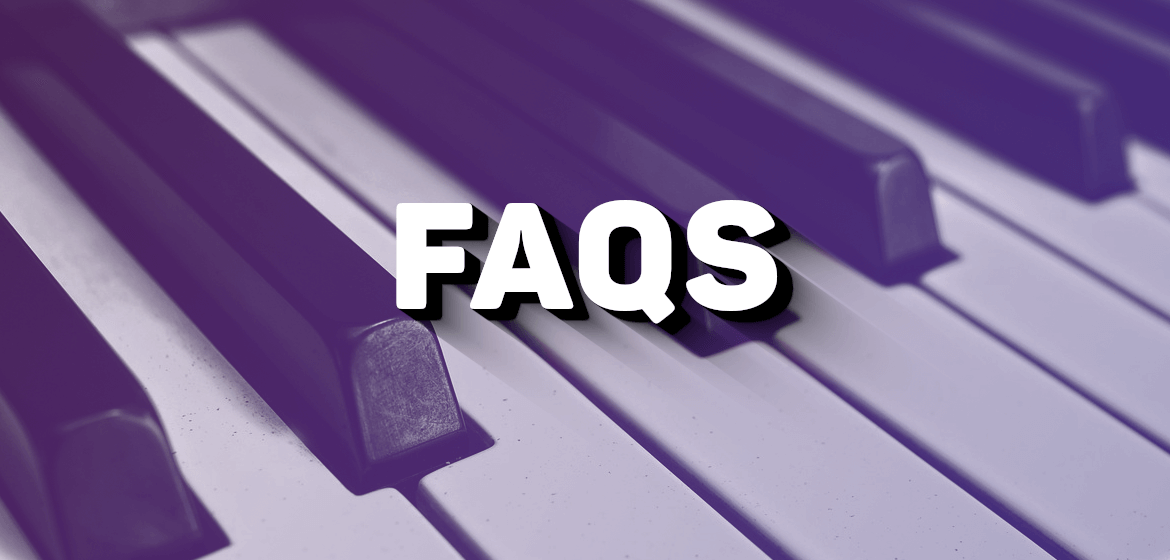We understand that you may have some FAQs on whether learning music is right for your child. Hence, on this page we will try to answer as many of the most common questions that you have. We answer questions from whether your child has the ability to learn music to our policies for replacement of lessons.

For individual lessons, you can start anytime depending on the availability. If you were to start your course in the middle or end of the month, fees will be pro-rated accordingly. Thereafter, fees should be paid monthly at the beginning of the month before the 15th or by term, or a penalty fee of $5 will be charged. For group classes, please enquire at the school.
Yes. You can arrange for a trial lesson which has to be paid for at least 24 hours in advance. There is no guarantee of a placement after the trial lesson. The trial lesson fee is non-refundable. It can however be used to offset the month’s fee if the student is accepted and signs up immediately after the trial lesson with the same teacher.
No. You can use the school’s instrument for the trial lesson at no extra cost. However, for woodwind and brass instruments, we advise you to have your own instrument due to hygiene purposes.
There are music appreciation courses for babies as young as 2 years old. In addition, we have a Mandeville Baby Violin course for babies as young as 2 ½ years old. Parents’ involvement and commitment is crucial as parents are both pupils and teachers. We also conduct violin, piano and cello classes for 3.5 years old onwards. Students are grouped according to age and maturity.
Every newborn baby comes into the world with potential abilities far exceeding those of any other creature on earth. Dr Suzuki said, “All children skillfully nurtured reach a high educational level but such nurturing must start from the day of birth.”
Man is the product of his environment. A child who grows up listening to music daily and has large exposure to musical activities like concerts will improve at a faster pace. Supportive and understanding parents who are actively involved in their children’s practice will also accelerate the child’s progress.
Students will be sent for examinations only when it is beneficial for them, at the teacher’s discretion. A suitable age to start taking examinations is at age 6. It is not necessary to take every year and every grade.
Our teachers are mostly graduates with a degree or a diploma in music. Moreover, all our teachers have undergone a stringent audition and interview for their performing abilities, teaching skills and interactive personality.
Yes. Many of our students study 2 instruments concurrently. However, the number of instruments a student should learn should depend on his interests, schedule, available practice times and parental support.
You would have to give the school 4 weeks advanced WRITTEN notice. You can send it by fax, mail, e-mail or fill up a termination form at the school.
Yes. You will have 47 lessons in a year no matter which day your lesson falls on. Therefore, fees are to be paid monthly (by the 15th) regardless of holidays. Please refer to our Academic Calendar for more details.
No. However, if a lesson is missed by the teacher, there will be a replacement lesson or a relief teacher will be arranged.
In the event of absence from lessons, you are advised to terminate your course by giving 4 weeks written notice to the school. If not, you will be required to pay for all current or outstanding fees.
It is crucial to have an instrument right from the start as the progress of the student depends entirely on practice. It is also important to invest in an acceptable quality instrument right from the start as it helps to encourage the student’s practice and therefore help sustain the child’s interest. Parents’ involvement and enthusiasm towards their child’s music education is another factor that greatly affects the sustenance of the child’s interest.
